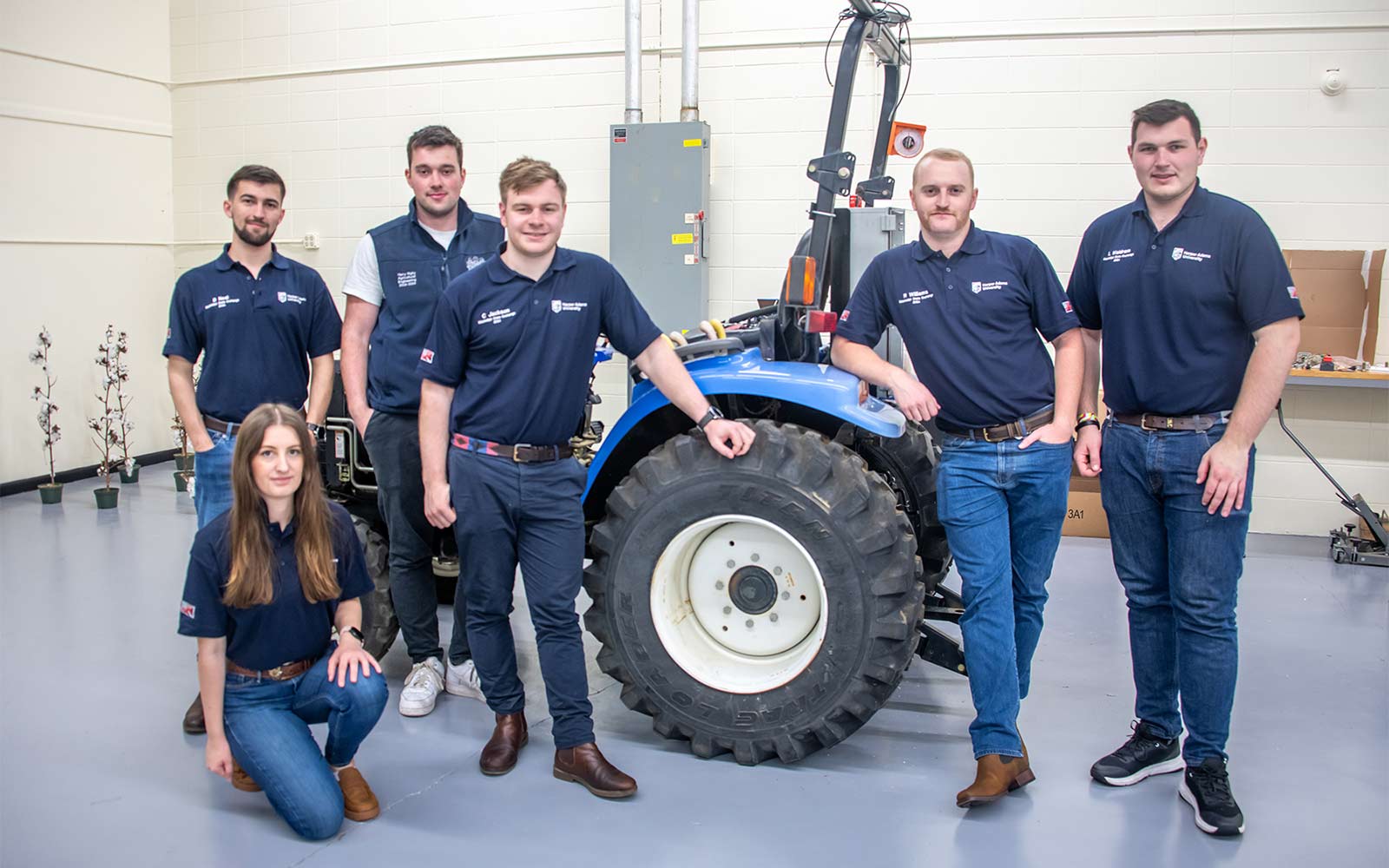During this summer, a team of students from MIT embarked on a journey to the sou …
MSU students travel to the UK to continue autonomous agriculture research following exchange program
Jennifer Livingstone

STARKVILLE, Miss.—In an early initiative to foster exchanges on autonomous agriculture concepts, Mississippi State University’s Agricultural Autonomy Institute recently hosted a two-week international exchange program with six students from Harper Adams University in the United Kingdom. MSU students are set to reciprocate the visit this coming June.
At their home institution, the master’s students from HAU are engaged in diverse agricultural engineering projects within the university’s engineering department, notable for the Hands Free Hectare Project aimed at enhancing autonomous agriculture systems’ viability. In 2017, the project successfully completed a crop harvest without direct human involvement.
Madison Dixon, MSU’s Agricultural Autonomy Institute associate director, highlighted the integration of HAU students into ongoing AAI projects to advance research and contribute their insights from the Hands Free Hectare Project.
“Our goal is to replicate and potentially enhance the Hands Free Hectare model from Harper Adams University at MSU’s Agricultural Autonomy Institute within our Autonomous Acres Proving Ground at the R.R. Foil Plant Science Research Center of the Mississippi Agricultural and Forestry Experiment Station,” mentioned Dixon.
The university, situated in Newport, England, is renowned for its agricultural studies and is a frontrunner in research concerning food sustainability, agricultural engineering, and environmental studies in Europe. Kit Franklin, the lead researcher of Hands Free Hectare and a senior engagement fellow at HAU Engineering, visited MSU last autumn.
“Following my visit to MSU to share insights on agriculture autonomy projects at the AAI’s launch last autumn, I recognized numerous synergies between Harper Adams Engineering and MSU,” Franklin remarked. “After initial discussions on academic collaboration during that visit, the swift arrangement of this initial exchange is remarkable.”
Kelly Billington, a mechanical engineering student from HAU, is supporting Assistant Professor Xin Zhang’s research involving the Clearpath Robotics Husky vehicle and aims to attach an automated arm to it. The proposed end-effector, a recently developed picking device at MSU, could serve as a small, autonomous robotic harvesting solution for cotton and other crops.
“Diverse backgrounds yield unique solutions to problems, and collaborating on ideas can lead to intriguing outcomes. In the realm of agriculture, considering a global perspective is essential for innovative solutions,” described Billington.
Students worked on enhancing AAI’s autonomous New Holland TC33 tractor, which incorporates an onboard computer functioning as the central processor, pulling data from GPS and cameras while managing the electric motors governing the tractor. AAI’s primary focus is optimizing the tractor’s autonomous technology for full operational hands-free navigation.
Visiting HAU students like Dom Neal, an engineering student, and agricultural engineering students Charlie Jackson and Rhodri Williams collaborated on refining the camera system for the TC33 tractor to enable effective field navigation without human intervention.
“The variability in crop height between the UK and the US presents unique engineering challenges. Experiencing diverse applications enhances engineers’ skills by offering exposure to different scenarios,” noted Williams.
The collaboration will persist through online channels, potentially establishing a long-term partnership between MSU and HAU.
AAI Director Alex Thomasson underscored the institute’s global outlook towards autonomous agriculture, emphasizing the early engagement of student expertise as a key priority.
“As a newly established institute, AAI is dedicated to fostering international collaboration and innovation in agricultural autonomy, promoting academic networking, and goodwill,” Thomasson stated.
AAI aims to nurture ties with established and emerging researchers in agricultural autonomy to advance research and development efforts in Mississippi. Further information about AAI can be found at www.aai.msstate.edu.

